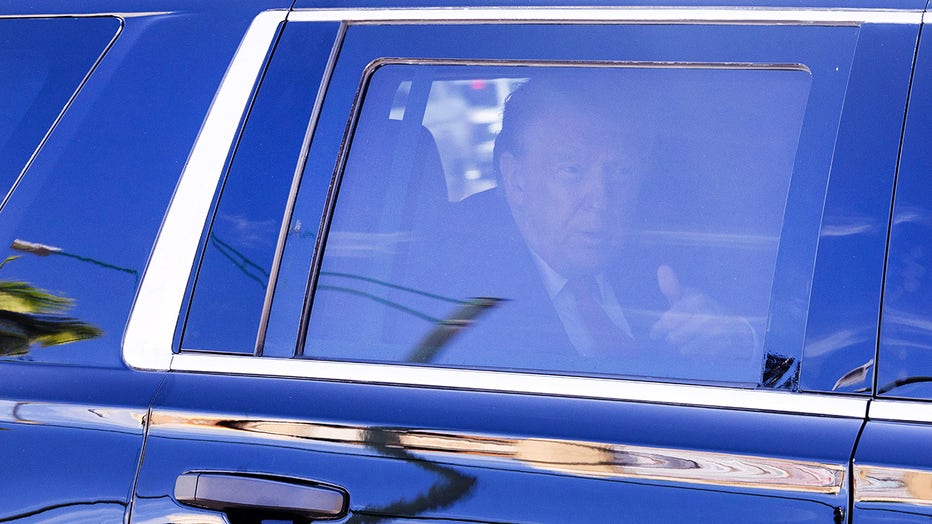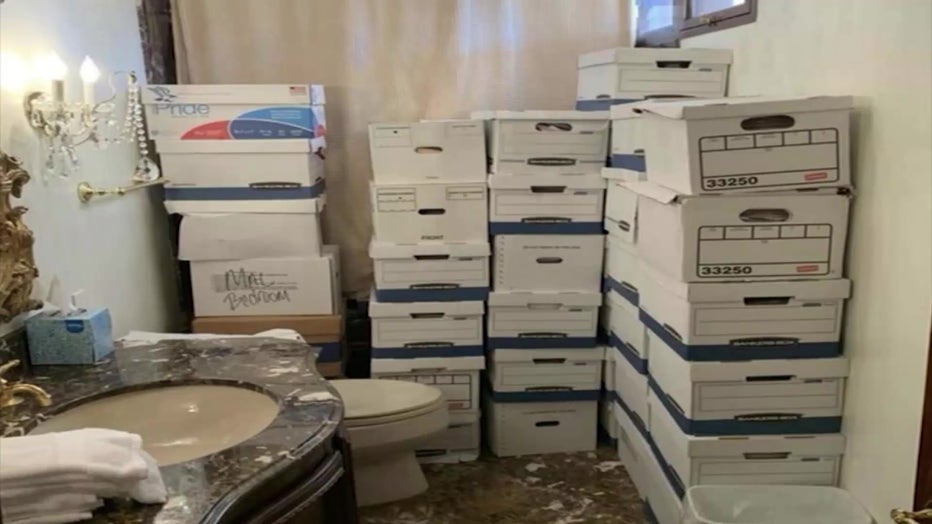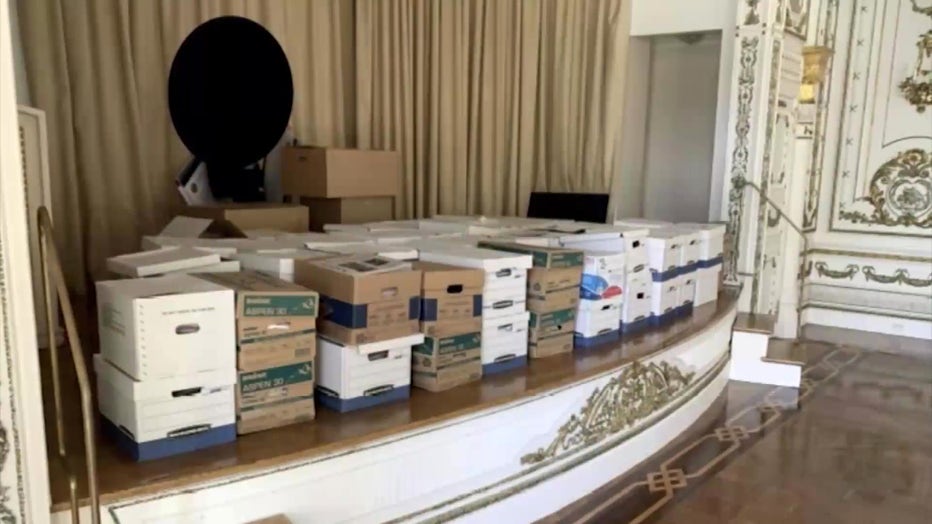Judge denies Trump's request to dismiss classified documents case

Trump's request denied by judge to dismiss classified documents case
Former President Donald Trump’s felony classified documents charges won’t be dismissed, a federal judge ruled.
FORT PIERCE, Fla. - Former President Donald Trump’s felony classified documents charges won’t be dismissed on constitutional grounds, a federal judge ruled Thursday afternoon.
Trump’s attorneys had filed a motion for U.S. District Judge Aileen Cannon to dismiss the case, claiming he was legally entitled to keep the records he’s charged with illegally retaining after he left office.

Former U.S. President Donald Trump is driven from the Alto Lee Adams Sr. U.S. Courthouse on March 14, 2024 in Fort Pierce, Florida. (Photo by Joe Raedle/Getty Images)
Cannon, who was nominated to the bench by Trump, didn't immediately rule after the hearing concluded Thursday, but made it clear through her questions that she was skeptical of Trump’s attorneys’ arguments.
Her decision was released a few hours later.
"Although the Motion raises various arguments warranting serious consideration, the Court ultimately determines, following lengthy oral argument, that resolution of the overall question presented depends too greatly on contested instructional questions about still-fluctuating definitions of statutory terms/phrases as charged, along with at least some disputed factual issues as raised in the Motion," she wrote.
The former president, who’s facing four different criminal cases as he campaigns for a rematch against President Joe Biden in November, attended the hearing Thursday and sat at the defense table in federal court.
PREVIOUS: Trump pleads not guilty to federal charges that he illegally kept classified documents
Here’s what to else to know:
What is Trump accused of in the documents case?
- Trump is accused of intentionally keeping America’s most sensitive classified documents at Mar-a-Lago, while also urging his lawyer to hide records and lie to the FBI.
- He’s also accused of enlisting staff to delete surveillance footage of boxes full of documents being moved around the property.

Alleged document storage at Trump's Mar-a-Lago home. (DOJ photo)
What Trump’s lawyers claim
- Trump's lawyers argue the Presidential Records Act gives him the authority to deem the records he took with him to his Mar-a-Lago estate in Florida as personal property.
- They also claim the law that 32 of the 40 felony counts against Trump are based on in the documents case is too vaguely worded to use against a former president.
What prosecutors allege
- Prosecutors say the documents Trump took included top-secret information on nuclear programs and the military capabilities of the U.S. and foreign adversaries.
- Those would be presidential records, not personal ones, prosecutors say, and even if they were personal records, the law doesn’t apply to the kind of classified and top-secret information Trump kept at Mar-a-Lago.

Alleged document storage at Trump's Mar-a-Lago home. (DOJ photo)
What’s next
Although Cannon declined to drop the charges against Trump, she hasn’t set a trial date. Cannon heard arguments on March 1 on when to schedule a trial date, but she hasn’t made an announcement. She also didn’t mention a trial date at Thursday’s hearing.
Prosecutors want the case to go to trial this summer, but Trump’s lawyers want to delay it until after the election.
RELATED: Robert Hur testifies before Congress on Biden classified documents probe

